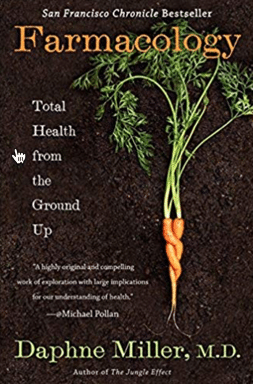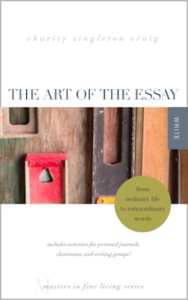When we bought our current house five years ago, the real estate agent told us the driveway to the east, between our house and the neighbors’, was a shared driveway, and the overgrown raised beds that ran along the fence on that side were ours.
So over the course of the next several days, as we painted walls, washed cabinets, and moved our belongings into the house, I also spent time outside weeding around the tomato and pepper plants I found languishing in the small jungle. When I brought over a load of dishes to unload in the kitchen, I parked in the shared drive, just for a few minutes, and once, when I wanted to pass through to the alley, I politely asked the neighbors to move their car from the shared drive. The car belonged to a relative, who graciously complied, but not without giving me a questioning look as she walked back into the house.
Which should have been my first clue that something was amiss. Because as it turned out, the weeds I was pulling and the drive I was parking on were not actually ours. Not even partly ours, as that particular driveway wasn’t shared. It belonged entirely to our neighbors, who later laughed off the misunderstanding. As we examined real estate documents and property lines more closely, we discovered a shared drive on the west side of the house, one without an accompanying raised bed and without the convenience of access to the back alley.
If only we’d been able to talk to the people who used to live here.
That’s a phrase that’s niggled at me many times since we moved in: when the pipes froze under the crawl space, when the water seeped through the basement walls, when the timer broke on the outdoor lights. If only we’d been able to talk to the people who used to live here, we’d have known to winterize my office at the back of the house. We’d know what plants grow best in the shaded flower beds, and we’d know what happens when that strange switch in the upstairs stairwell gets flipped.
Quoting the poet Alexander Pope, Wendell Berry calls this “consulting the genius of the place,” when we ask those who know a place best what it needs and how to care for it. It was the advice he gave Daphne Miller, MD, a practicing physician, professor of family medicine, and the author of Farmacology: Total Health from the Ground Up, when she visited him before embarking on a journey to discover how “farming, at its best, can provide radical new paradigms for health and healing.”
“You always need to ‘consult the genius of the place,’” Berry told Miller. “You should ask the farmers, ‘What was here when you came? What was here before you came? What was here for you to start with? What does nature require of you here? What will nature help you to do here?’”
And so that’s what she did. To write Farmacology, Miller visited six different farms to explore “how the art and science of agriculture—from choice of seed to soil management—can positively impact your personal health.” She talked with a biodynamic farmer, a cattle rancher, egg producers, a vineyard owner, urban farmers, and an aromatic herb grower to find the connections between caring for the earth and caring for our bodies. And as it turns out, what’s good for the land—its soil, its vegetation, its animals—is also good for us. And not just for our bodies, but also for our relationships, our work, and even our souls.
Starting September 18, we invite you to join us for our next book club as we explore, with Miller, the connection between farming and health. We’ll also use some of the principles Miller discusses to find our way back to the page, using Farmacology not only as a series of writing prompts but also as a way to assess the health of our writing lives.
Reading Schedule:
September 18: Preface-Chapter 2
September 25: Chapters 3-4
October 2: Chapters 5-6
To join us for book clubs, be sure to become a patron, so you can access all the posts and discussions.
Photo by Sharada Prasad CS, Creative Commons license via Flickr. Post by Charity Singleton Craig.
_______________________
What kind of writer are you? asks Charity Singleton Craig,
as she opens you to a journey of discovery about the art of essay writing that explores both practical and reason-for-
writing concerns.
- Grammar for a Full Life Book Club: On Becoming Less Possessive - June 16, 2021
- Grammar for a Full Life Book Club: Chilling Out on the Grammar Rules - June 9, 2021
- Grammar for a Full Life Book Club: A Passive Voice - June 2, 2021



L.L. Barkat says
I got such a terrific laugh from that opening story, well told. (And I was laughing again later last night, when discussing the story again with a friend!)
Farmacology sounds like a fascinating book, and I can’t wait to hear more from you on it. 🙂 (My older daughter was musing on the play on “pharmacology” which had its own double meaning of medicine/poison. And that feels applicable for the question of how farming is engaged in as well.)
Charity Singleton Craig says
I laugh every time I think of that story, too! I can only imagine what the neighbors thought when they saw the new owner of the house next door weeding their garden for them. 🙂
Farmacology is an excellent read. I even endured carsickness to finish it because we were on a road trip, and I just couldn’t put it down. I held the book up at eye level, catching peeks of the road between paragraphs and taking deep, calming breaths to stave off the nausea. It was worth it, though. It’s got me thinking about so many things … gardening, loving the places we live, building relationships, creating a healthy ecosystem for my writing, and more.
I’m really looking forward to discussing this with the Tweetspeak community.
LW Willingham says
I’m trying to get inside your neighbor’s head, wondering what they were thinking when you were tending their garden and asking them to move their car… Very amused. 🙂
Looking very much forward to this book club. Such a timely subject.
Jennifer Searls says
I landed in your neighborhood via twitter today. One click led to another and another……and here I am now – an entry level patron just so I can eavesdrop on this particular book club discussion. How interesting your conversation is! I’m going to go find this book now.
Charity Singleton Craig says
Jennifer – So glad you found your way here! Welcome. We’re already into week one of the book club, and you can find that post here: https://www.tweetspeakpoetry.com/2019/09/18/farmacology-book-club-good-tilth-for-the-land-the-body-and-our-writing/.